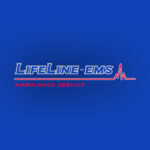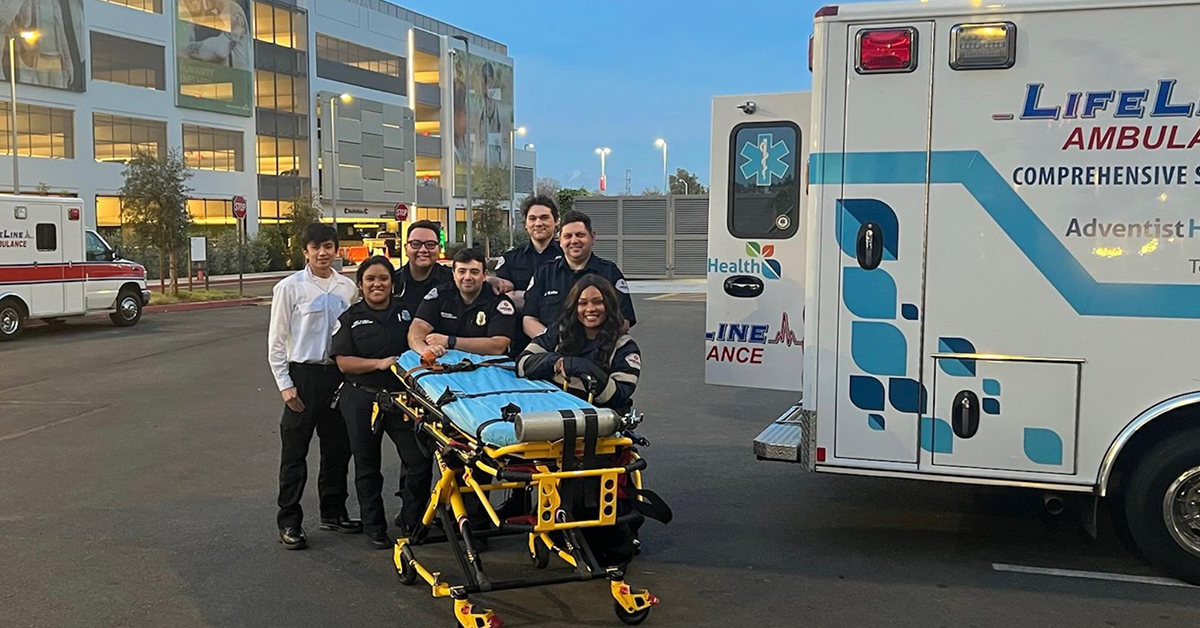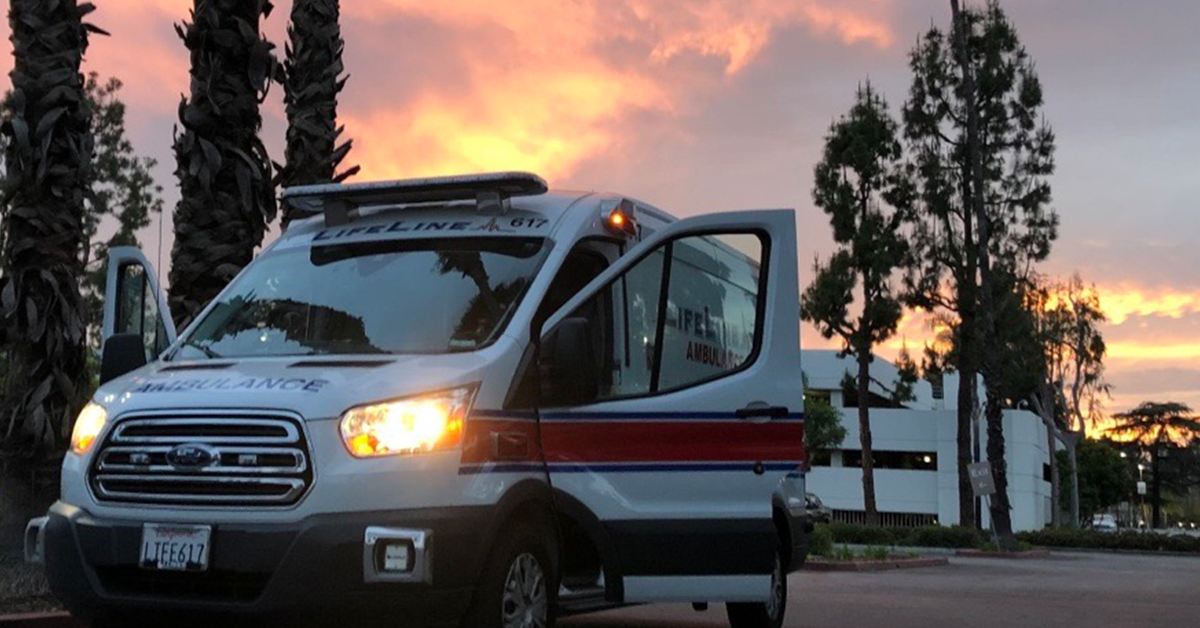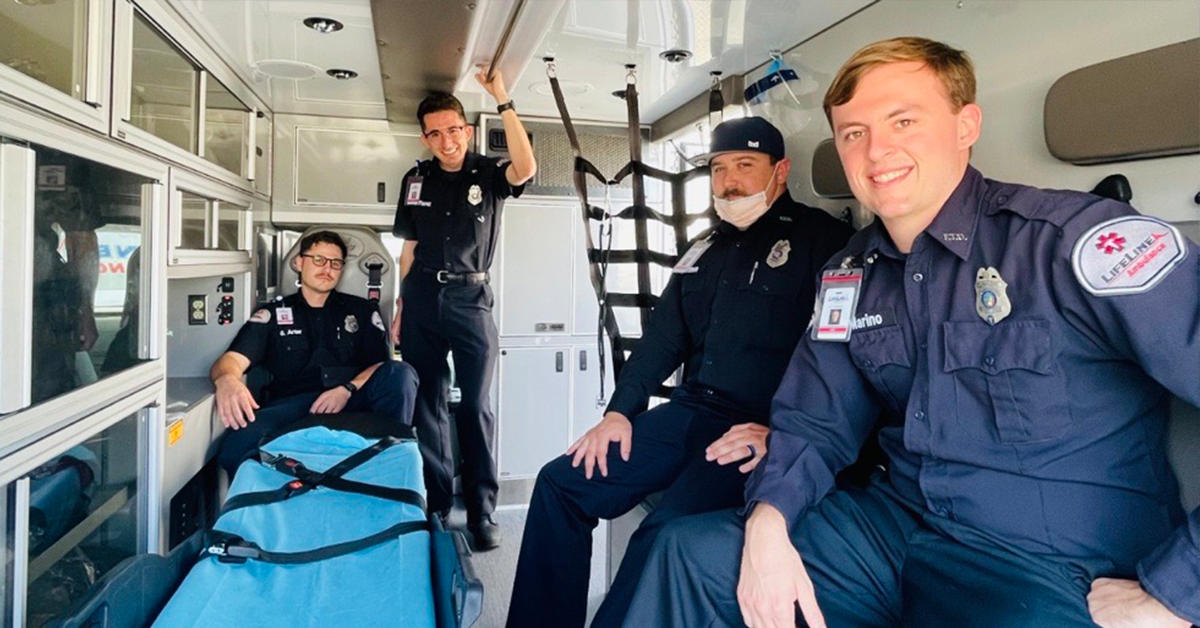Emergency Medical Services (EMS) professionals are often on the front lines of life-and-death situations, where every decision can make a significant difference. The experiences gained as an EMT or paramedic offer profound lessons that go beyond medical expertise, influencing personal growth, professional development, and even driving broader change within communities. For those considering a career in EMS in Los Angeles and Southern California, LifeLine EMS offers the perfect environment to learn, grow, and impact lives in meaningful ways. This article delves into the lessons learned from the front lines of EMS and how they shape individuals and communities while fostering a culture of continuous improvement.
Lesson 1: Adaptability in the Face of Uncertainty
One of the first lessons learned in EMS is the importance of adaptability. In the world of emergency care, unpredictability is the norm, and situations can change rapidly. EMTs and paramedics must be ready to respond to a variety of emergencies, from medical crises and traumatic injuries to large-scale disasters.
Why Adaptability Matters:
- Rapidly Changing Situations: EMS professionals often arrive at scenes where the situation is evolving. The ability to adapt quickly and effectively respond is crucial for providing the best care possible.
- Critical Decision-Making: In emergencies, decisions must be made swiftly, often with incomplete information. EMS professionals learn to trust their training, remain calm under pressure, and make choices that prioritize patient safety.
- Continuous Learning: The nature of EMS work means that no two days are the same. This constant variety encourages continuous learning and growth, as EMS professionals develop the flexibility to handle any situation that comes their way.
Lesson 2: The Power of Teamwork and Collaboration
EMS is never a solo endeavor. The success of emergency medical care depends heavily on effective teamwork and collaboration. Whether working alongside fellow EMTs, paramedics, firefighters, or hospital staff, the ability to communicate clearly and work cohesively is vital.
Key Takeaways on Teamwork:
- Shared Responsibility: In high-pressure scenarios, everyone on the team has a role to play. Understanding and respecting each team member’s contribution ensures a coordinated and efficient response.
- Effective Communication: Clear and concise communication is critical when time is of the essence. EMS professionals learn how to convey essential information quickly and ensure that everyone is on the same page.
- Trust and Dependability: Trusting your team is essential in emergency settings. EMS professionals develop a strong sense of camaraderie and reliability, knowing they can count on each other when it matters most.
Lesson 3: Resilience and Emotional Strength
The nature of EMS work means that professionals are often exposed to challenging and emotionally charged situations. Developing resilience and emotional strength is crucial for maintaining well-being while continuing to provide high-quality care.
Building Emotional Resilience:
- Coping with Stress: EMS professionals must manage their own stress while helping others navigate crises. Learning techniques to handle stress, process emotions, and decompress after difficult calls is essential.
- Finding Balance: Balancing the emotional demands of the job with self-care is critical. EMS professionals learn the importance of setting boundaries, seeking support when needed, and prioritizing mental health.
- Staying Grounded: Despite the intensity of the work, finding moments of positivity and focusing on the impact of their care helps EMS professionals stay motivated and engaged in their roles.
Lesson 4: Empathy and Compassion
Working on the front lines of EMS teaches professionals to see the world through a compassionate lens. Whether it’s providing comfort to a patient in distress or supporting a worried family member, empathy plays a central role in the work of an EMT or paramedic.
The Role of Empathy in EMS:
- Human Connection: Beyond the technical skills of medical care, human connection is at the heart of EMS. Patients often feel vulnerable and afraid; a kind word or reassuring presence can make a significant difference in their experience.
- Patient Advocacy: EMS professionals often advocate for patients who cannot speak for themselves, ensuring they receive the care they need. This role requires empathy and a deep commitment to putting the patient’s well-being first.
- Compassionate Care: Even in high-pressure environments, maintaining a compassionate approach helps build trust with patients and creates a supportive atmosphere, which is essential for delivering effective care.
Lesson 5: The Importance of Continuous Improvement
The world of EMS is always evolving, with advancements in medical technology, changes in protocols, and new challenges emerging regularly. EMS professionals learn that embracing a mindset of continuous improvement is key to staying effective and delivering the best care possible.
Embracing Growth and Development:
- Lifelong Learning: EMS professionals commit to ongoing education, staying current with the latest medical advancements and best practices. This dedication to learning ensures that they can provide cutting-edge care in any situation.
- Feedback and Reflection: Constructive feedback and self-reflection are integral parts of growth in EMS. Reviewing performance, learning from experiences, and seeking ways to improve are ingrained in the culture of EMS.
- Adapting to Change: Whether it’s new technology, updated protocols, or evolving community needs, EMS professionals must be agile and ready to adapt. This adaptability fosters a proactive approach to challenges and encourages innovative problem-solving.
Lesson 6: Leadership in Crisis
Leadership in EMS is not limited to those with formal titles. Every EMT and paramedic must step up as a leader in critical moments, guiding others, making decisions, and taking charge when necessary.
Developing Leadership Qualities:
- Decisive Action: In emergencies, there is little time for hesitation. EMS professionals develop the confidence to take decisive action, guiding others and making critical decisions under pressure.
- Calm Under Pressure: Effective leaders in EMS maintain composure in chaotic environments, providing direction and reassurance to both patients and colleagues. This calm presence is essential for managing crises successfully.
- Mentorship and Guidance: As EMS professionals gain experience, they often mentor new recruits, passing on knowledge, skills, and insights. This mentorship builds future leaders and strengthens the EMS community.
LifeLine EMS: Driving Change in Los Angeles and Southern California
LifeLine EMS is committed to fostering an environment where these valuable lessons are not only learned but also put into practice to drive positive change. For those in Los Angeles and Southern California seeking a career that offers growth, fulfillment, and the opportunity to make a real impact, LifeLine EMS provides the perfect platform.
Comprehensive Training and Development
LifeLine EMS ensures that its team members receive top-tier training, equipping them with the skills and knowledge needed to thrive in the ever-evolving field of EMS. From basic life support training to specialized courses, continuous development is at the heart of LifeLine EMS’s mission.
Supportive Work Environment
A supportive and collaborative work environment is essential for personal and professional growth. LifeLine EMS fosters a culture of respect, teamwork, and open communication, allowing employees to learn from each experience and continually improve.
Commitment to Community Engagement
LifeLine EMS is deeply invested in the communities it serves. Through public health education, outreach programs, and partnerships with local organizations, LifeLine EMS extends its impact beyond emergency care, driving positive change throughout the region.
Keep Reading
Want more? Here are some other blog posts you might be interested in.
Emergency Medical Services s a high-stress, physically demanding profession that requires dedication, quick decision-making, and resilience. While the rewards of saving lives...
Emergency Medical Services professionals are often the first point of contact during critical health crises. While technical expertise is essential in emergency...
Emergency Medical Services play a critical role in ensuring the health and safety of communities. In Southern California, including Los Angeles, the...






